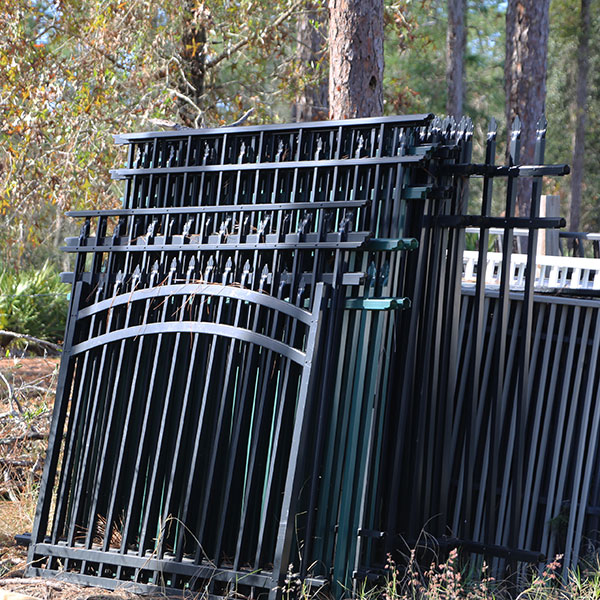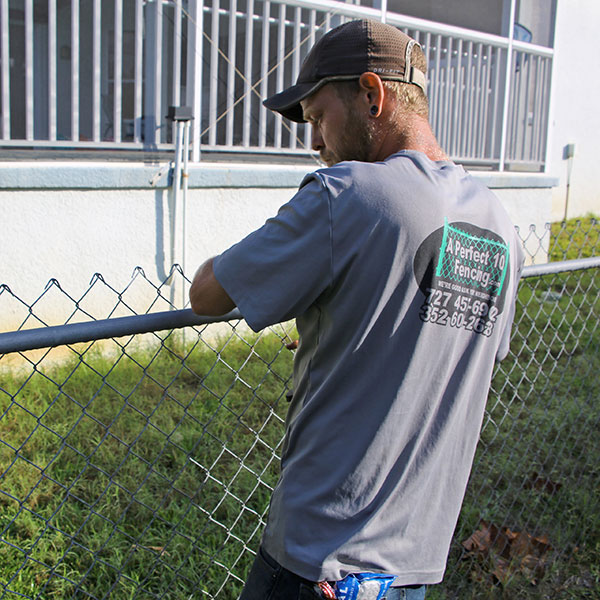Permits & Codes for Fence Installation: What You Need to Know
Installing a new fence on your residential or commercial property is an important undertaking. A number of elements are involved that, when done correctly, result in the perfect fence for your specific needs. One of these elements is gaining approval for your fence from your city or county zoning office and obtaining the necessary permits. All types of fence installations – wood fences, chain link fences, vinyl/PVC fences, aluminum fences and others – need to be built according to building codes that apply in the area where you live. Ignoring this critical step in adding a new fence to your property could be time-consuming and expensive.
Learn the fence building codes in your city/town/county
 The city hall or county office that governs your property is the place to visit during the planning stage for your fence. Staff at these offices can tell you or give you documentation that explains what restrictions, if any, apply to building a new fence on your property. Generally, the more urbanized the area you live in, the more restrictive fencing codes likely will be. Obtaining a permit for a new fence in rural areas is usually a little less complicated.
The city hall or county office that governs your property is the place to visit during the planning stage for your fence. Staff at these offices can tell you or give you documentation that explains what restrictions, if any, apply to building a new fence on your property. Generally, the more urbanized the area you live in, the more restrictive fencing codes likely will be. Obtaining a permit for a new fence in rural areas is usually a little less complicated.
Common building and zoning code specs for fence installations
It may seem that your city or county wants to make it difficult for you to build your fence, but that’s not true. These entities simply want to enforce a set of standards for all properties that will maintain a certain aesthetic in the communities they serve.
For the installation of new fences, those aesthetics often center around the height of the fence and where on your property the fence is to be built. Depending on your local permitting laws, there may be restrictions (usually minor) on the color of the fence.
Fence heights of backyard fences tend to be less regulated than fences in front yards. Many permitting guidelines allow for fences six feet and higher in residential backyards, while approving a maximum of three and a half feet or so in the front, public-facing areas of your property.
Commercial fence installations sometimes have less-restrictive building guidelines from the city or county, but property landlords or leasing companies may have their own set of parameters for installing new fencing.
 Fencing materials
Fencing materials
As with fence height and where and how the fence is built, you’ll need to check with local zoning/building authorities to determine if certain fencing materials are on the non-approved list. You should find that most materials for new fences that are properly built are acceptable. It’s important to keep in mind that if you live in a housing development with a homeowners’ association (HOA), more stringent guidelines for adding a fence may exist. In addition, some commercial leasing agencies may disallow certain fencing materials to ensure their properties remain aesthetically uniform.
Takeaway: When planning a new fence installation, always check with your municipal or county office for permitting requirements, and make sure your fence is approvable by your HOA or, if it’s a commercial property, by the entity that regulates use of that property.
A Perfect 10 Fencing of Brooksville, FL, can help you understand your local building and zoning codes as you plan your new fence. Once everything is in place, we’ll install an exceptional safety fence, privacy fence, security fence, pool fence, decorative fence or any other kind of fence that you’ll love and be proud of for years to come. Call us at (352) 606-2623 with questions or to schedule an in-home meeting.


